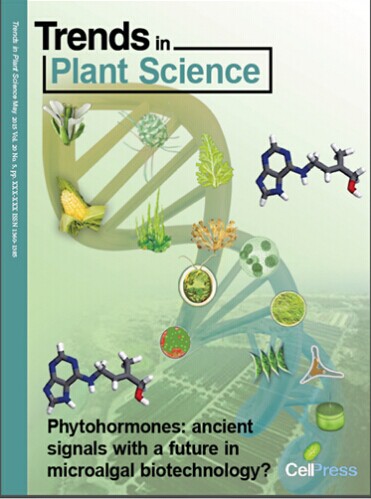Phytohormones are a class of signaling molecules that are produced intrinsically in plants. In higher plants, phytohormones are usually synthesized in one location and then transported to another location, exerting their physiological effects at extremely low concentrations. Although they are simple, small-molecule organic compounds, phytohormones regulate a wide variety of crucial and economically relevant processes in flowering plants, such as seed development, dormancy, germination, vegetative growth and stress responses in flowing plants. Despite these pivotal regulatory roles in growth and development of higher plants, the origin and evolution of phytohormones have been controversial, and their presence and physiological roles in evolutionarily ancient, unicellular plants such as microalgae remain elusive.
Drs. LU Yandu and XU Jian, both from Functional Genomics Group from Single-Cell Center, CAS-QIBEBT, performed comparative genomics and metabolic reconstruction of sequenced microalgae, and unveiled the distribution and evolution of the biosynthetic and signaling pathways of phytohormones in microalgae and other plants, including auxin, abscisic acid (ABA), cytokinin (CK), ethylene (ET), and gibberellins (GAs). By reviewing the recent discoveries on this research frontier from the CAS-QIBEBT team and labs world-wide in a comprehensive manner, they put forward a number of conclusions. First, present-day microalgae possess functional phytohormone metabolic pathways. Moreover, evidence is accumulating that suggest the origination of modern higher plant phytohormone biosynthesis pathways from ancient microalgae, even though some of the microalgal phytohormone signaling pathways remain unknown. In fact, despite the high degree of similarity in phytohormones metabolism pathways between many microalgae and higher plants, presently unknown signaling mechanisms are likely present in microalgae to transmit the phytohormone signals. Finally, manipulation of phytohormones in microalgae may represent untapped yet enormous opportunities for biofuel feedstock development.
The review article stirred broad interest among the plant, algae and biofuel research communities world-wide. It was selected as the cover story in the May 2015 issue of Trends in Plant Science (Figure 1). This work was supported by the National Natural Science Foundation of China and the State Key Development Program of Basic Research of China.

Figure 1. Phytohormones in microalgae: a new opportunity for microalgal biotechnology
(Cover Article in the May 2015 issue of Trends in Plant Science)